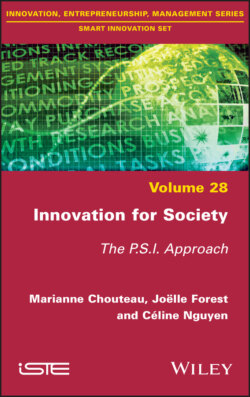Читать книгу Innovation for Society - Joëlle Forest - Страница 8
1.2.1. The meaning of innovation: an old question 1.2.1.1. A positive view of innovation
ОглавлениеThe question of meaning is not new. Starting in the late 16th Century, Bacon and Descartes associated the progress of knowledge with that of technology, and the progress of technology with the progressive improvement of the living conditions of people. Indeed, Descartes considers technological progress as the vector of the creation of a new “Garden of Eden” in which poverty, illness and even death can be excluded thanks to human genius:
As soon as I had acquired some general notions of physics, and as soon as I began to experience them in various specific difficult situations, I noticed how far they could lead, and how they differed from the principles hitherto used, I believed that I could not keep them hidden without sinning greatly against the law which obliges us to procure, as far as it is in us, the general good of all men. For they have shown me that it is possible to attain knowledge that is very useful for life… [DES 37, p. 168].
Specifically, Descartes advocates knowledge for action, with innovations being considered from the point of view of their contribution to the improvement of the living conditions of humanity:
This is not only to be desired for the invention of an infinity of artifices, which would make it possible to enjoy, without any difficulty, the fruits of the earth and the conveniences found in it, but mostly for the preservation of health [DES 37, p. 168].
According to Descartes, technological change is thus associated with the idea of progress through and for collective action. This vision of Progress, with a capital “P”, one might say, culminated in the Age of Enlightenment, a century which claimed to be the time when Progress overcame backward-looking obscurantism. It was a century in which humans no longer experienced history passively but became the subject of this history, substituting God’s place in the order of creation and participating in the design of the world in which they lived. It was a century in which faith in the capacity of humans to act, through reason, to make moral and social ideals concrete in the real world. The French Revolution of 1789 seemed to embody the revolution of Progress taking place. This led Claude-Henri de Rouvroy, Count of Saint-Simon, to affirm that the golden age of humanity was before them and not behind them.
History seems to agree with such a point of view, because the Belle Époque, a century later in France, ushered in a period of prosperity supported by the greatest wave of discoveries (vaccination, X-rays) and innovations (the construction of Gustave’s Eiffel Tower, the birth of aviation with Clément Ader and the Orville and Wilbur Wright brothers, the birth of the film industry thanks to the invention of the cinematograph by the brothers Auguste and Louis Lumière, of the automobile industry following the invention and improvement of the combustion engine, the introduction of household electricity, etc.) in history. It was also a period marked by the advent of a new religion that Felix Le Dantec would describe as scientism1 and the advent of the figure of the inventor as a modern-day hero, a figure that would be magnified by popular literature following the example of Jules Verne’s writings in the 19th Century and truly global exhibitions such as the World’s Fair.
Figure 1.1. Poster from the 1933 Chicago World’s Fair whose motto was “Science finds, industry applies, man complies”.
Source: Wikipedia.org. For a color version of this figure, see www.iste.co.uk/chouteau/innovation.zip
